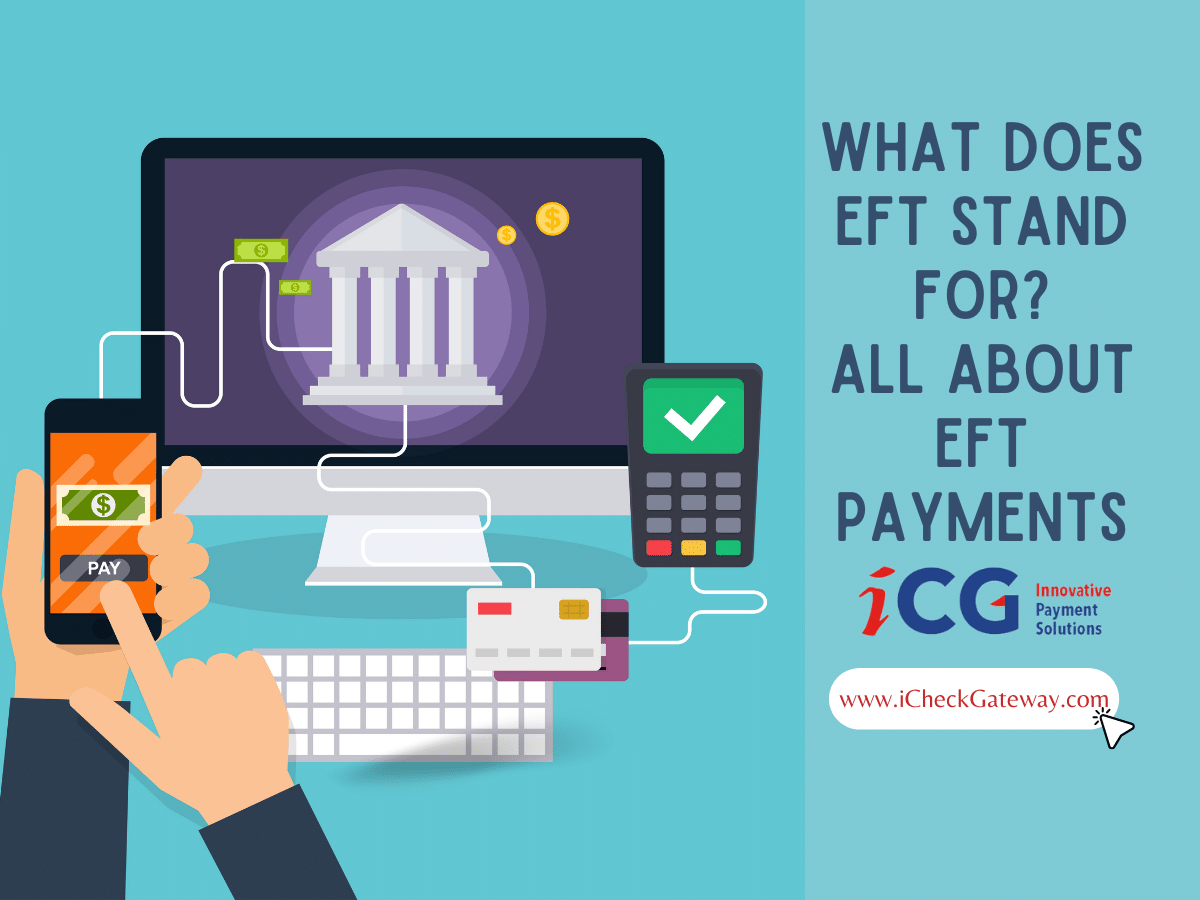Did you know that nearly 92% of the money in the world does not really exist?
Let me explain.
If you think that the world governments are busy printing money all the time, you are wrong. In reality, only 8% of the world’s total currency is available as physical, tangible money, and the rest of it is just numbers on a computer screen. So, carrying out transactions via cash all the time is not only feasible but practically impossible. This is where Electronic Funds Transfer, aka EFT, steps into the picture.
What Does EFT Stand for?
The short answer, EFT stands for Electronic Funds Transfer. Although the term seems high-tech and complicated, it really is not. EFT is just another term for transferring money over an online (internet-enabled) computer network. So, all transactions that do not involve cash or a physical, tangible property are a part of EFT.
What are the Different Types of EFTs?
ACH Technology (often known as Electronic Checks): ACH is one of the most common types of electronic fund transfer. In 2021 alone, the ACH network handled over 29.1 Billion transactions valued at $72.6 Trillion in the U.S. alone. Most organizations use ACH solutions to process loan payments and other recurring transactions due to lower processing costs. However, P2P (Person-To-Person) transactions on the ACH network are also rising by the day.
P2P Transfers: Money transfers over apps like Paypal and Venmo are also a type of EFT payment process.
ATMs: People who want to withdraw cash from an ATM (Automated Teller Machine) essentially rely on the EFT network. So, even if you are carrying out a cash transaction, a part of it is controlled electronically.
Debit and Credit Card Payments: Debit and credit cards, aka plastic money, also rely on the EFT network to complete transactions.
Direct Deposits: Financial institutions look at direct deposits as a hassle-free method to move money from one bank account to another without much paperwork. It is the most commonly used method to process bulk transactions like payroll management.
Wire Transfers: Wire transfers are also EFT transfers that usually operate on a fixed cost model. A wire transaction is a preferred method of transferring large sums of money instantaneously. It is popularly used for transferring money across international borders too.
How Do EFT Payments work?
Large financial institutions and banks handle EFT payments with their strong computer networks. The processing times for an electronic payment depend heavily on the type of EFT you choose. Let’s say you are making a credit card payment at a grocery store. In that situation, your bank will automatically transfer money from its account to the receiver’s account within seconds and send you the bill on the next billing date. Suppose you choose to pay via an ACH transaction. In that case, your bank will automatically deduct the concerned amount from your account and transfer it within the same day or the next few business days.
You are most likely using EFTs to process transactions and pay bills every day. Today, most merchants need to start accepting EFT payments since cash-based and paper check-based transactions are almost extinct. You can now begin your EFT journey by partnering with a reliable payment gateway to process ACH and credit card payments on a single platform. Get in touch with a payments processing expert to start your payments journey today!
Date originally published: April 24, 2022
MORE TAGS:
ACH Technology, Ecommerce, ACH Education, Payments Education, Entrepreneur Life, Banking, Merchants, Consumers, Lifestyle


